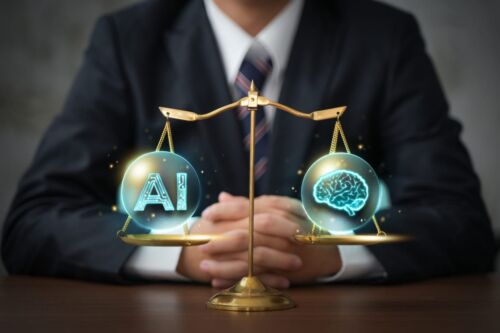



The rapid advancement and adoption of Artificial Intelligence (AI) have implications for every sector of society, including the criminal justice system. As AI tools for investigation, analysis, and decision-making continue to evolve and proliferate, understanding their potential uses, benefits, and drawbacks becomes increasingly important.
Conceptually, Artificial Intelligence, or AI, is a branch of computer science that refers to machines capable of performing tasks that traditionally required human intelligence and input. AI has the ability to take in and respond to information independently, performing tasks that would normally require human intelligence and decision-making input without the need for human intervention.
Today, AI can be found in many aspects of our lives, including the service, manufacturing, communications, industrial, and medical sectors. Law enforcement and the criminal justice system are increasingly using AI to identify violations of the law and predict crime, enabling more efficient and effective allocation of resources. AI is also being used to help identify the likelihood of whether someone under investigation is likely to reoffend.
AI is increasingly being used in criminal cases to help law enforcement, attorneys, and judges make decisions and analyze evidence.
AI can analyze large amounts of data to identify patterns, such as when and where crimes are most likely to happen. Police departments may use this information to allocate resources or patrol more effectively.
AI-powered facial recognition systems can compare images or video footage from crime scene investigations to databases of known criminals to identify potential suspects.
AI can quickly sort through vast amounts of digital evidence to find relevant information for criminal investigations or trials.
Some courts use AI tools to assess the likelihood that a defendant will reoffend or fail to appear in court.
Lawyers are increasingly turning to AI systems to review past cases, locate relevant legal precedents, and build stronger, more effective arguments.
Law enforcement can use AI to examine computers, phones, and other devices for evidence of criminal activity.
While AI can be a valuable tool, its use in criminal investigations poses risks and can negatively impact individual rights if not used correctly. To ensure AI is used ethically, its use should be monitored.
AI systems can reflect and reinforce human bias, especially when applied to data that already contains racial or socioeconomic inequalities. Facial recognition can produce false matches, which can lead to false accusations and mistaken identities.
The use of AI in criminal investigations also raises privacy concerns, particularly when it is used to collect and analyze large amounts of data that contain personal or confidential information.
AI often lacks transparency. Due to its complexity, it can be difficult to understand how AI reached a decision, which makes it more difficult to challenge errors in court.
While the use of AI in criminal investigations offers exciting possibilities, the effective use of these tools relies on professionals’ ability to use them ethically and proficiently. Ongoing training and education programs are essential to ensure that law enforcement and court personnel stay current on emerging technologies and methodologies.
The Lebedevitch Law Firm, LLC, is positioned at the forefront of the emerging use of AI in criminal investigations. As AI continues to evolve, we remain committed to providing thoughtful, aggressive representation to individuals in Stamford, Greenwich, New Canaan, Norwalk, Darien, Rowayton, Fairfield, Trumbull, Westport, Wilton, Weston, Danbury, New Haven, Bethany, Woodbridge, Milford, Stratford, Bridgeport, and throughout the State of Connecticut.
If you are under investigation or were charged with a crime, contact The Lebedevitch Law Firm today to schedule an appointment to discuss your situation and how we can assist you.
© 2025 The Lebedevitch Law Firm, LLC
| View Our Disclaimer | Privacy Policy
Law Firm Website Design by The Modern Firm